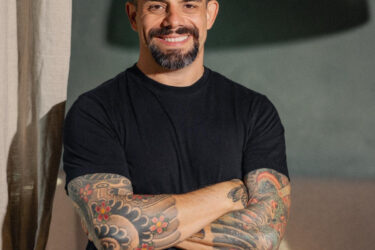Change is never easy, as Pedro Garcia has discovered. Amid rumors that he wants to do away with recess and kindergarten naps, the new Metro Nashville Public Schools superintendent has steadily and systematically begun to change the way Nashville educates its children.
As recently released test scores indicate, the new way is working. We sat down with Dr. Garcia to discuss some of the topics that are uppermost in parents’ minds.
Nashville Parent (NP): What’s your assessment of your accomplishments in the 2001-2002 school year?
Pedro Garcia (PG): Well, it was a difficult year, but I think it was also a year when we established criteria for future success. There were some things that worked well and some things that we need to improve on, but overall, the goals that we had identified for this past year — there were 20-some — we accomplished.
NP: Test scores were one of those goals?
PG: Oh yes, improving student achievement. For the past five years, scores were flat. This year we had a huge increase. We went up 6.7 percent district wide. We concentrated on K – 4 this year and went up huge. If you can increase three percent, that’s great. If you can do seven percent — that’s off the charts.
NP: What’s going to be your main focus in the upcoming school year?
PG: Well, we have several things. One is to implement the strategic plan, to improve student achievement – most of our goals are prescribed in the strategic plan. All the numbers are listed in there. We also want to begin to really seriously take a look at dropout prevention — how to reduce the number of kids that we lose, that drop out of school. And then to establish an anchor group, which is a kind of a shared decision-making group, made of board members, teacher union representatives, administrators and cabinet members.
Dr. LaVoneia Steele (the new associate director for communications and strategic planning) is coming in to establish a communication program with the community. I also want to have meetings with representatives from all the 11 clusters — teacher representatives and parent representatives — on a regular basis just to talk and to deal with rumors.
NP: What kind of relationship do you have with teachers and with the teachers’ union?
PG: My relationship with the average teacher has always been positive. It has not been positive with the union leadership. But they are part of the anchor group and I hope to form a working relationship, and be able to work together through issues.
NP: What was the reason for relocating so many principals to different schools this year?
PG: We had 17 changes occur as a result of new schools — some administrative changes in the office, retirements — and we made some changes because we thought it was important to handle specific schools. Next year will be much less, we hope.
NP: Some progressive educators think there’s too much emphasis on standardized testing. What do you think?
PG: I agree, there probably is, but that’s just life. I don’t think we should spend a lot of time preparing for the TCAP, but if we teach kids well, they’ll do well on the TCAP. It’s better time spent by just teaching the kids subject matter, rather than just a review for the test. But I also understand that the tests are important and that we are assessed by the public on how we do on the tests.
NP: Do you think the school district or teachers or the administration should be judged by the result of standardized tests?
PG: I don’t know if we should or if we shouldn’t — it’s just clean data. There isn’t any other way of comparing the effectiveness of a school. At least the standardized test compares you to districts not only statewide, but nationwide, so it gives you some kind of a rule to measure the success of the school. Unfortunately there’s not a lot of other measures that indicate that. So in that respect, I think it (testing) has some credibility because it judges everybody on the same scale.
NP: How seriously do you take safety in school, with all that’s happened in the past few years?
PG: It’s much more important than test scores. Our number one
priority is safe schools.
NP: Do you have measures that you’re taking to ensure safety?
PG: Constantly. We’re putting in campus supervisors – — adult employees who walk the campus and make sure that kids are doing what they’re supposed to be doing and that people who don’t belong in school are not there. High schools have three, four or five campus supervisors each, and we have resource officers at all the schools.
NP: What changes have been made to Special Education programs?
PG: I haven’t touched it (Special Ed.) aside from changing the director. I expect the new director and assistant director to look at the program and make changes.
NP: We’ve heard you say a couple of times before that you think there are too many kids placed in Special Ed.
PG: Yes, but this is not a Special Ed. problem, it’s a regular school issue. Because kids haven’t learned to read, they’re overidentified into Special Ed.
NP: You’ve also said that more often than not, they’re African-American boys. Why do you think that is?
PG: Well, we know that male children regardless of race have a more difficult time when they enter school because they aren’t as ready to learn as girls are. Boys tend to be more hyper, more into climbing trees than sitting down and drawing.
We know that little girls are more ready for school at age 5 than boys are. And in many cases, lower socioeconomic children haven’t had the same level of school training or preparation from their parents as children of middle or high socioeconomic families.
So when you couple the fact that they’re boys and lower socioeconomic and their parents haven’t really, what I call “fussed,” with them or spent a lot of time with them, and they don’t have preschool experience as many other children do, they often come into school with real low skills. They don’t learn to read right away, and being boys, they just have difficulty grasping the reading.
Often, although they’re very bright kids — it has nothing to do with intelligence, it has to do with readiness — the teacher thinks there must be something wrong, and they end up in Special Ed.
NP: What do you think is the most important thing parents can do to help their children receive a good education?
PG: Number one is make sure that they talk with the teacher constantly and know what’s going on in the classroom — and that whatever’s going on in school they reinforce at home. Two, that they make sure the student does homework and has a good educational experience at home — a place to read and study — and regardless of whether the kid says, “Well, I don’t have any homework,” that there is a study time when the child reads and so on.
Third is that parents read to their children regardless of age. Sometimes parents think once their children can read, they don’t have to read to them anymore. We know that children should be reading to children, even up to teenagers.
So, reinforce what’s happening in school and keep in contact with the teacher — always let the teacher know that you want to know what’s going on and don’t call just when the kid gets in trouble, but frequently so there’s constant monitoring of progress.
NP: Have you kissed the pig yet?
(Garcia pledged to kiss a pig and shave his head if test scores improved last year.)
PG: On Sept. 20.
NP: We’re marking that date on our calendar. And you’re shaving your head, too?
PG: Yes, we’re raising funds for school library materials. For $100 a snip (anyone can cut my hair). We’re hoping to raise a lot of money for library books and other materials.
Ashley Crownover is managing editor of this publication.




